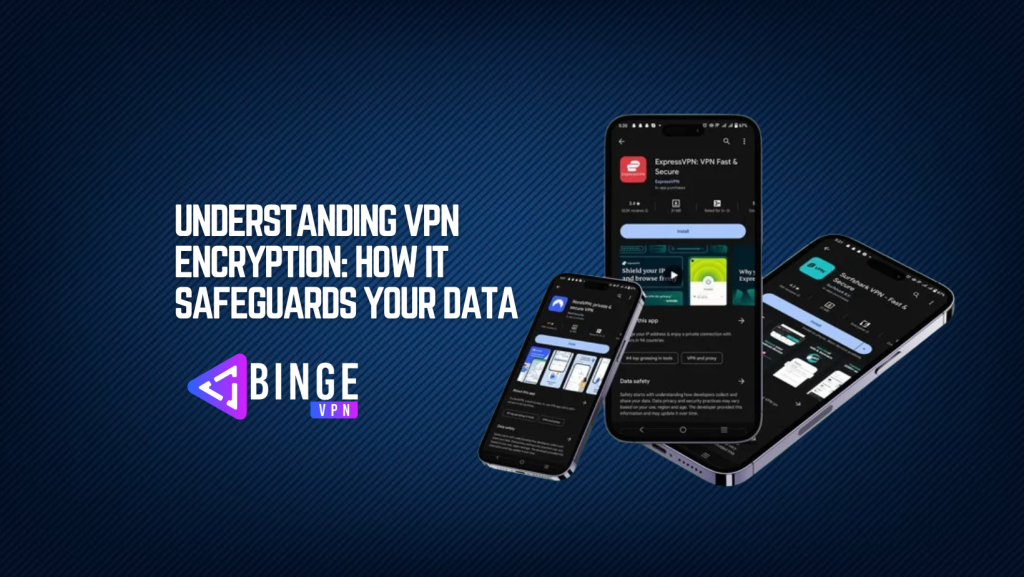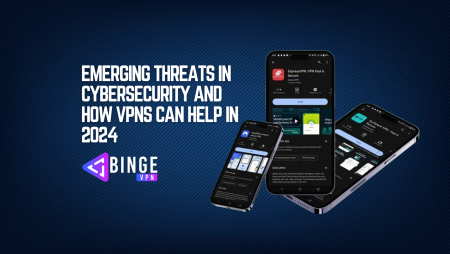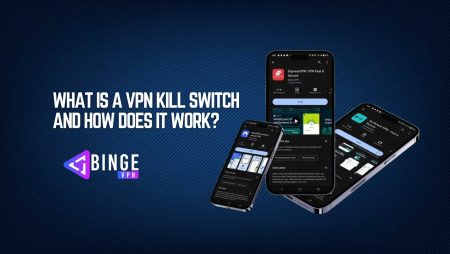In today’s digital age, online privacy and data security are more critical than ever. With the increasing number of cyber threats, government surveillance, and data breaches, protecting your personal information while browsing the internet is a top priority. One of the most effective tools for safeguarding your online activities is a Virtual Private Network (VPN). A key feature that makes VPNs so powerful is encryption, a technology that secures your data and keeps it out of the hands of cybercriminals and other prying eyes. In this blog, we’ll dive deep into VPN encryption, exploring what it is, how it works, and why it’s essential for protecting your data.
What is VPN Encryption?
Encryption is a process that converts readable data into an unreadable format using complex algorithms, ensuring that only authorized parties can access the information. VPN encryption is the application of this process to the data transmitted between your device and the internet through a VPN. By encrypting your internet traffic, a VPN creates a secure “tunnel” through which your data travels, protecting it from hackers, ISPs, and other entities that may try to intercept or monitor your activities.
How VPN Encryption Works
At its core, VPN encryption relies on a combination of encryption algorithms, protocols, and keys to secure your data. Here’s a step-by-step breakdown of how VPN encryption works:
- Data Encryption: When you connect to a VPN, your data is encrypted before it leaves your device. This involves using complex algorithms to scramble your information into a format that is unreadable without the correct decryption key.
- Transmission Through the VPN Tunnel: Once encrypted, your data is transmitted through a secure tunnel established between your device and the VPN server. This tunnel ensures that your data remains protected as it travels across the internet.
- Decryption at the VPN Server: When your encrypted data reaches the VPN server, it is decrypted back into its original format. The VPN server then sends your data to its intended destination (e.g., a website or online service).
- Encryption for the Return Trip: When the requested data is sent back to your device, the VPN server encrypts it again. The data travels through the secure tunnel and is decrypted on your device, allowing you to view the content securely.
Types of VPN Encryption
VPN encryption can be achieved through various encryption protocols and algorithms, each offering different levels of security and performance. Here are some of the most common types of VPN encryption:
- AES (Advanced Encryption Standard)
- What It Is: AES is a widely used encryption standard known for its strong security and efficiency. It supports key sizes of 128, 192, and 256 bits, with AES-256 being the most secure.
- How It Works: AES uses symmetric key encryption, meaning the same key is used for both encryption and decryption. It operates on fixed block sizes and goes through multiple rounds of substitution, transposition, and mixing to secure data.
- Why It’s Important: AES is considered virtually unbreakable by brute force attacks, making it a preferred choice for VPNs to protect user data.
- RSA (Rivest-Shamir-Adleman)
- What It Is: RSA is an asymmetric encryption algorithm that uses a pair of keys—a public key for encryption and a private key for decryption.
- How It Works: RSA relies on the mathematical difficulty of factoring large prime numbers. It’s often used in VPNs for key exchange, ensuring that encryption keys are securely shared between your device and the VPN server.
- Why It’s Important: RSA provides a secure method for establishing encryption keys, crucial for maintaining the overall security of the VPN connection.
- ChaCha20
- What It Is: ChaCha20 is a stream cipher that offers high security and performance, especially on devices with limited processing power, such as smartphones.
- How It Works: It uses a 256-bit key and a 64-bit nonce (number used once) to generate a keystream, which is then XORed with the plaintext to encrypt the data.
- Why It’s Important: ChaCha20 is known for its speed and resistance to timing attacks, making it a good alternative to AES in certain scenarios.
- Blowfish
- What It Is: Blowfish is a symmetric key block cipher known for its speed and effectiveness.
- How It Works: It uses variable-length keys (up to 448 bits) and operates on 64-bit blocks of data, going through 16 rounds of encryption.
- Why It’s Important: Although still secure, Blowfish is less commonly used today due to its smaller block size compared to AES, which can lead to vulnerabilities with large data volumes.
VPN Protocols and Their Role in Encryption
A VPN protocol is a set of rules that govern how data is transmitted and encrypted between your device and the VPN server. Different protocols offer varying levels of security, speed, and compatibility. Here are some of the most common VPN protocols and their encryption characteristics:
- OpenVPN
- What It Is: OpenVPN is an open-source protocol known for its robust security and configurability. It supports multiple encryption algorithms, including AES, and can run on any port, making it difficult to block.
- Why It’s Important: OpenVPN is widely regarded as the gold standard for VPN encryption due to its strong security features and flexibility. It supports both UDP (faster, less reliable) and TCP (slower, more reliable) modes.
- WireGuard
- What It Is: WireGuard is a newer, lightweight protocol designed to be faster and more efficient than older protocols like OpenVPN and IPSec. It uses modern encryption algorithms, such as ChaCha20 and Poly1305.
- Why It’s Important: WireGuard offers a streamlined codebase and improved performance, making it an excellent choice for both speed and security.
- IPSec/IKEv2
- What It Is: Internet Protocol Security (IPSec) combined with Internet Key Exchange version 2 (IKEv2) is a popular protocol suite that provides secure key exchange and data encryption.
- Why It’s Important: IKEv2/IPSec is known for its speed, stability, and support for mobile devices. It’s particularly effective at maintaining a stable connection when switching between networks, such as from Wi-Fi to mobile data.
- L2TP/IPSec
- What It Is: Layer 2 Tunneling Protocol (L2TP) combined with IPSec provides encryption and secure data transport.
- Why It’s Important: L2TP/IPSec is easy to set up and offers decent security, though it is generally slower than OpenVPN and can be more easily blocked by firewalls.
- PPTP
- What It Is: Point-to-Point Tunneling Protocol (PPTP) is one of the oldest VPN protocols, known for its speed but also its security weaknesses.
- Why It’s Important: Due to its outdated and vulnerable encryption, PPTP is not recommended for secure browsing but may still be used for basic, low-security needs.
The Importance of Strong Encryption in VPNs
Strong encryption is essential for several reasons, particularly in an age where data breaches and cyber threats are increasingly common. Here’s why strong encryption is crucial when using a VPN:
- Protecting Sensitive Information: Whether you’re accessing your bank account, sending private emails, or browsing social media, strong encryption ensures that your data remains private and secure from hackers and unauthorized third parties.
- Maintaining Privacy: Encryption helps keep your online activities hidden from ISPs, government surveillance, and advertisers. This is particularly important in regions where internet censorship and monitoring are prevalent.
- Preventing Identity Theft: By securing your personal information, such as login credentials and financial details, encryption helps protect you from identity theft—a growing concern in our interconnected world.
- Secure Remote Access: For businesses, VPN encryption allows employees to securely access company resources from remote locations. This ensures that sensitive corporate data is protected, even when accessed from potentially insecure networks like public Wi-Fi.
- Bypassing Geo-Restrictions and Censorship: VPN encryption helps you bypass geo-restrictions and internet censorship by masking your IP address and making it appear as though you’re browsing from a different location. This is especially valuable for accessing content in countries with strict internet controls.
How to Choose a VPN with Strong Encryption
When selecting a VPN, it’s important to consider the strength of its encryption protocols and the overall security it offers. Here are some factors to look for:
- Encryption Standards: Ensure the VPN uses strong, up-to-date encryption standards, such as AES-256. Avoid VPNs that rely on outdated or weaker encryption algorithms.
- VPN Protocols: Look for VPNs that support secure protocols like OpenVPN, WireGuard, or IKEv2/IPSec. These protocols offer a good balance of security, speed, and reliability.
- No-Logs Policy: A VPN’s no-logs policy ensures that your online activities are not tracked or recorded. This adds an additional layer of privacy, even if the VPN provider is compromised.
- Security Features: Choose a VPN with built-in security features such as a kill switch, DNS leak protection, and IPv6 leak protection. These features help maintain your privacy by preventing accidental exposure of your data.
- Reputation and Reviews: Research the VPN provider’s reputation and read user reviews to ensure that it has a track record of strong security and reliability. Look for VPNs that have undergone independent security audits, as these can provide additional assurance that the VPN’s encryption and privacy practices are up to standard.
- Performance and Speed: While strong encryption is essential, it should not come at the cost of performance. A good VPN balances robust security with fast connection speeds, ensuring a smooth browsing experience without significant slowdowns.
- Cross-Platform Support: Ensure that the VPN offers consistent encryption and security features across all devices and operating systems you use, whether it’s Windows, macOS, iOS, Android, or Linux.
- User-Friendly Interface: A VPN should be easy to use, allowing you to quickly connect and adjust settings without hassle. Even the best encryption won’t be effective if it’s difficult to configure or if users are unsure of how to enable it properly.
Common Misconceptions About VPN Encryption
Despite the growing awareness of VPNs, there are still some misconceptions about how encryption works and what it can and cannot do. Let’s clear up a few common misunderstandings:
- “VPNs Make You Completely Anonymous”: While VPN encryption greatly enhances your privacy, it does not make you entirely anonymous. VPNs mask your IP address and encrypt your data, but they don’t hide all traces of your online presence, such as cookies or browser fingerprinting.
- “All VPNs Use the Same Level of Encryption”: Not all VPNs offer the same level of encryption. Some free or less reputable VPNs may use outdated or weaker encryption protocols, putting your data at risk. It’s important to choose a VPN with proven, robust encryption standards.
- “Encryption Slows Down Your Connection Dramatically”: While encryption does add some overhead, modern VPNs are optimized to minimize the impact on speed. Using efficient protocols like WireGuard can provide secure connections with minimal speed loss.
- “VPNs Only Protect Your Internet Browsing”: VPN encryption covers all data transmitted from your device, not just web browsing. This includes emails, file transfers, VoIP calls, and any other internet-based communication.
- “Free VPNs Offer the Same Security as Paid Ones”: Free VPNs often cut corners on security to reduce costs, such as using weaker encryption or logging user data to sell to third parties. Investing in a reputable paid VPN service is usually necessary to ensure strong encryption and a true commitment to privacy.
The Future of VPN Encryption
As technology continues to evolve, so too does the landscape of VPN encryption. Here are some trends and future developments in VPN encryption:
- Post-Quantum Encryption: With the advent of quantum computing, traditional encryption methods could eventually become vulnerable. Researchers are already working on quantum-resistant algorithms that will ensure VPNs remain secure even as quantum computing capabilities advance.
- Improved Protocols: Protocols like WireGuard represent the future of VPN encryption, with a focus on simplicity, speed, and security. Expect to see more VPN providers adopting such protocols to offer better performance without compromising on encryption strength.
- Integration of AI and Machine Learning: AI and machine learning can enhance VPN security by detecting and responding to threats in real time. For example, AI-driven analytics could identify unusual patterns of activity and adjust encryption settings accordingly to maintain the highest level of security.
- Decentralized VPNs: The rise of decentralized VPNs, which use blockchain technology to distribute server load and eliminate central points of failure, could provide even greater levels of privacy and resistance to censorship.
- Enhanced User Control: Future VPNs may offer more granular control over encryption settings, allowing users to customize their security based on specific needs, such as prioritizing speed for streaming or maximizing encryption strength for sensitive transactions.
Conclusion: Why VPN Encryption Matters
VPN encryption is a cornerstone of online privacy and security. By encrypting your data, VPNs protect your personal information from a myriad of threats, including cybercriminals, surveillance, and data leaks. Understanding how VPN encryption works and choosing a VPN that offers strong, reliable encryption is essential for safeguarding your digital life.
As our reliance on the internet continues to grow, so too does the importance of using effective tools like VPNs to protect our data. With the right VPN, you can browse, work, and communicate online with confidence, knowing that your information is shielded by powerful encryption technologies. Whether you’re concerned about privacy, security, or simply the peace of mind that comes with knowing your data is safe, VPN encryption is an invaluable resource in the modern digital landscape.
Invest in a reputable VPN with strong encryption standards, and take control of your online security today. Your data—and your peace of mind—are worth it.




